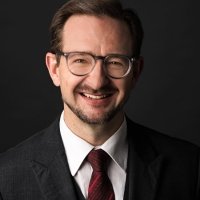Restoring Trust in Euro-Atlantic Relations: A Conversation with OSCE Secretary General Thomas Greminger
Today, the Euro-Atlantic security environment is marked by growing divisions and uncertainty. Geopolitical confrontation has re-emerged in Europe-and the norms and principles underpinning the security order have been challenged. At the same time, the Euro-Atlantic region faces a host of complex and interconnected transnational challenges, including violent extremism, terrorism, cybercrime and large movements of people. In the current atmosphere of mistrust and confrontation and in the face of these challenges, there is real danger of more volatility and less manageability-with repercussions for peace in Europe and beyond.
Ambassador Thomas Greminger is Secretary General of the Organization for Security and Co-operation in Europe (OSCE), the world's largest regional security organization. He addressed the urgent need for reviving results-oriented security dialogue to prevent crises from turning into conflicts, to confront transnational challenges, and to seize opportunities for cooperation.
Selected Quotes
Jane Harman
“Something I think is key to the OSCE and why it remains an important security organization [is] that it operates by consensus and the U.S. and Russia are both members of the organization. My view is that we need both more consensus and more U.S.-Russian cooperation and the OSCE offers the potential for that.”
“Wouldn’t it be wonderful if we could achieve consensus on core values!"
Secretary General Thomas Greminger
“When people talk about Euro-Atlantic security these days, they normally focus on NATO, perhaps the EU. The OSCE is rarely mentioned, and I think that is a mistake. My visit to Washington… is part of an effort to change that discourse and bring an additional, essential perspective to the table.”
“Trust is at a historical low-point, geopolitical divisions have reemerged, and the structural weaknesses of European cooperative security mechanisms have become obvious in responses to recent crises.”
“I’m not advocating appeasement, but détente and dialogue should be a complement to deterrence.”
“Let me me clear: basic principles cannot be sacrificed for the sake of finding common ground, and major issues like Crimea or Donbas cannot be ignored – but repeating the same positions over and over again and expecting a different outcome is not working either, and increasing tensions increases risk.”
“The Minsk Agreements are the only show in town, if I may say so. There is nothing else. I hear here and there voices that say, ‘The Minsk Agreements have failed. We need to look for something different.’ Well, I would really disagree. I find these voices extremely dangerous.”
“What we are advocating is the concept of migration governance. We need better migration governance. And I think there is more of an acknowledgement of this concept.”
“A peace operation – I would like to refer to a UN-OSCE joint peace operation – could be such a tool that allows us to overcome the current impasse [in the Ukraine crisis]. But I think I would want to caution – there are those who think that a peace operation would allow us to go beyond the Minsk Agreements. This is not the case. This will not happen… [A peace operation] is not an easy way out.”
Introduction

Keynote Speaker

Hosted By

Global Europe Program
The Global Europe Program is focused on Europe’s capabilities, and how it engages on critical global issues. We investigate European approaches to critical global issues. We examine Europe’s relations with Russia and Eurasia, China and the Indo-Pacific, the Middle East and Africa. Our initiatives include “Ukraine in Europe”—an examination of what it will take to make Ukraine’s European future a reality. But we also examine the role of NATO, the European Union and the OSCE, Europe’s energy security, transatlantic trade disputes, and challenges to democracy. The Global Europe Program’s staff, scholars-in-residence, and Global Fellows participate in seminars, policy study groups, and international conferences to provide analytical recommendations to policy makers and the media. Read more
